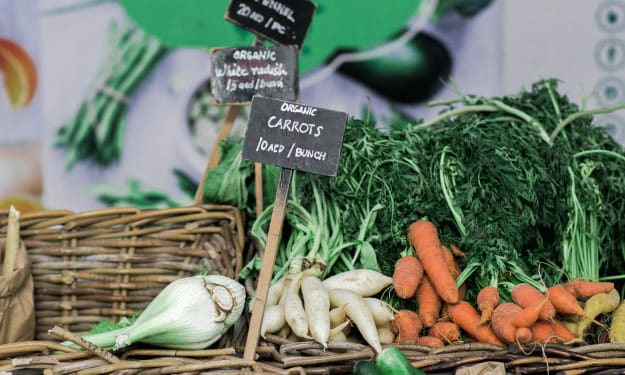Broccoli
Broccoli contains protein, dietary fiber, vitamin K, vitamin A, vitamin C, vitamin E, carotene, thiamine, riboflavin, niacin, calcium, phosphorus, sodium, magnesium, iron, zinc, selenium, potassium, acetylcholine and thiophenol sulfur ketone, flavonoids and other components.

Broccoli contains protein, dietary fiber, vitamin K, vitamin A, vitamin C, vitamin E, carotene, thiamine, riboflavin, niacin, calcium, phosphorus, sodium, magnesium, iron, zinc, selenium, potassium, acetylcholine and thiophenol sulfur ketone, flavonoids and other components.
1. Broccoli contains dithiolsulfurone, which can reduce the enzymes that form melanin and prevent the formation of skin pigment spots, and has a good whitening effect on the skin.
2. Broccoli is rich in vitamin C, which has the effect of preventing scurvy and anti-aging.
3. Broccoli contains a large amount of vitamin K, vitamin K can maintain the toughness of cardiovascular, enhance the elasticity of blood vessels, so that blood vessels are not easy to rupture, can improve cardiovascular function.
4. Broccoli is rich in dietary fiber, can reduce the absorption of sugar, slow down the rise of blood sugar, gram auxiliary treatment of diabetes.
5. Broccoli contains flavonoids, which stop cholesterol from oxidizing and prevent platelets from clumping together, reducing the risk of heart attacks and strokes
Vitamin C and vitamin K are guardians of blood vessels
Broccoli contains 89.2 milligrams of vitamin C per 100 grams, the equivalent of about three and a half lemons (50 grams each), which is perfect for all the vitamin C an adult needs daily.
Broccoli contains 101.6 micrograms of vitamin K per 100 grams, which is nearly enough to meet the entire requirement.
Vitamin C is involved in collagen synthesis, which is essential for maintaining the elasticity of blood vessel wall. Vitamin K is essential for many blood clotting factors to function.
Normal intake of these two vitamins, can prevent hemorrhagic disease.
Cancer prevention weapon - glucosinolate
Glucosinolates, also called glucosinolates, are cruciferous vegetables (radishes, cabbage, kale, mustard, kohlrabi, arugula, broccoli...). The source of its distinctive bitter and spicy flavor.
In broccoli, two representatives of such substances are sulforaphane and indole-3-methanol.
Sulforaphane is considered to be an activator of Nrf2 signaling pathway. Indole-3-methanol can activate the tumor suppressor protein PTEN to prevent or even treat cancer.
The benefits of glucosinolates are not only anti-cancer, but also can lower blood glucose, lipid, antioxidant...
Anti-inflammatory master - polyphenols
Many scientists believe that THE nutritional value of cruciferous vegetables is related to their polyphenolic compounds, especially the flavonoids QUERcetin and kaempferol, as well as hydroxycinnamic acid and sinapic acid.
Broccoli stands out among cruciferous vegetables, both in terms of the type and amount of polyphenols it contains.
These polyphenols have strong anti-inflammatory properties.
Treasure broccoli. Know the benefits
With broccoli packed with nutrients, let's take a look at how it actually improves your health:
anti-aging
Two small clinical trials in smokers showed that after 10 days of eating broccoli (250 grams per day), the level of DNA damage decreased by 41% and the level of the inflammatory marker C-reactive protein (CRP) decreased by 48%.
This suggests that eating broccoli may help us fight aging by maintaining genomic stability and reducing inflammation.
Cancer prevention
Epidemiological studies have found that broccoli consumption may protect against certain types of cancer, including breast, prostate, stomach, colorectal, kidney, and bladder cancers.
Fall blood sugar
In 2017, a team from Lund University in Sweden recruited 97 patients with type 2 diabetes to take either broccoli sprout powder (equivalent to 99.5% glucosinolate) or a placebo, after finding glucosinolate had a hypoglycemic effect in animal models.
After 12 weeks, those taking the broccoli sprout extract had a 10 percent reduction in blood sugar and a significant reduction in glycosylated hemoglobin without medical intervention.
The blood fat
In 2012, researchers in Iran recruited 81 patients with type 2 diabetes and gave them either powdered broccoli sprouts or a placebo.
After four weeks, those who had taken the broccoli sprout powder had a drop in LDL, the bad cholesterol, and a more pronounced drop in ox-LDL, the very bad for blood vessels. And high density lipoprotein (HDL), the "good cholesterol", was significantly higher.
Promoting defecation
Broccoli is rich in dietary fiber. Glucosinolate can reduce oxidative stress in the gut and change the composition of intestinal microbes. The superposition of these effects will make people who eat broccoli more smoothly.
In addition, broccoli has many potential health benefits, such as improving cognitive function, maintaining normal immunity, preventing osteoarthritis, protecting normal fetal development, improving vision, etc., but we will not go into details because they are still in vitro or animal experiments.
About the Creator
Heather
Share the nutritional value of fruits and vegetables!






Comments
There are no comments for this story
Be the first to respond and start the conversation.